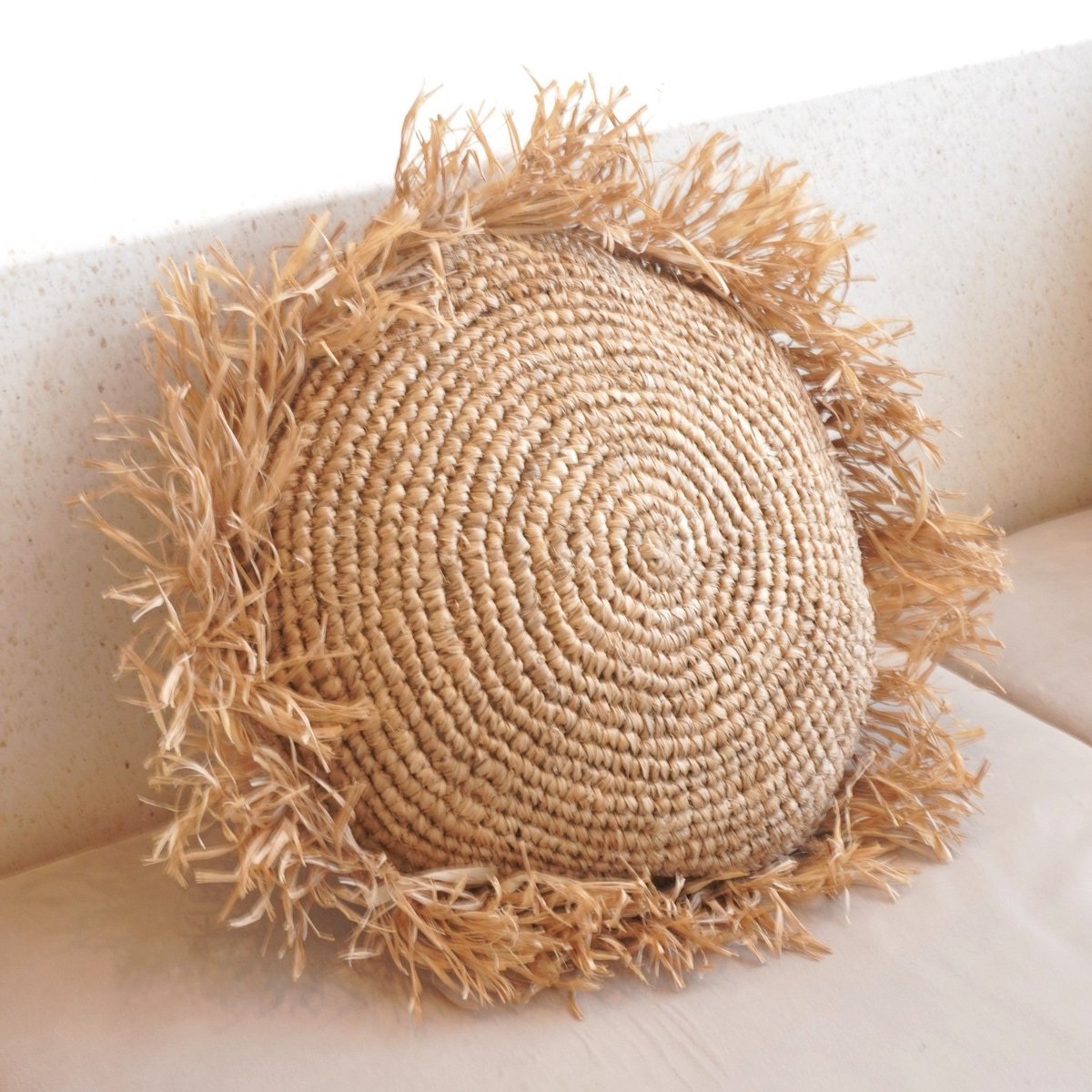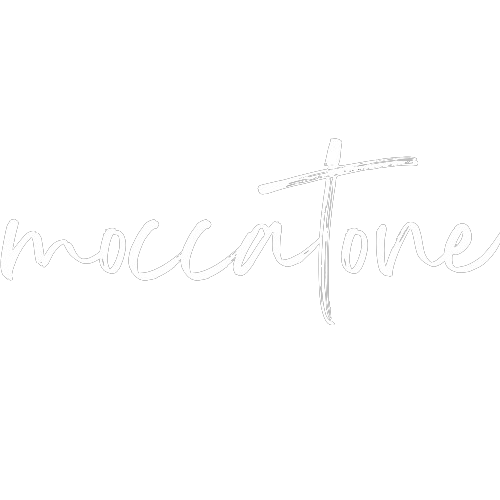Soeji
Round boho cushion with fringes, decorative cushion TARAKAN
Round boho cushion with fringes, decorative cushion TARAKAN
Regular price
€65,90 EUR
Regular price
Sale price
€65,90 EUR
Taxes included.
Shipping calculated at checkout.
Quantity
Couldn't load pickup availability
• 40cm diameter
• Robust casing made of raffia, filled with cotton and coconut fibers
• Perfect as a decorative eye-catcher on a bed or sofa
• The packaging is plastic-free
• 100% handmade and fairly traded
Every look at this pillow reminds us of the sound of the sea and a gentle breeze. With its airy fringes and sun-bleached material, Tarakan conjures up a touch of the tropical beach in your home. Its round shape offers a nice change from the usual square cushions and, especially in combination with them, a wonderful contrast emerges.
Making this artistic pillow requires a lot of patience and sensitivity. The starting material is dried bast fibers, which are woven into this enchanting round cushion using the traditional knotting needle technique. This approach gives the pillow its characteristic texture and depth. Tarakan is filled with a blend of cotton and coconut fiber that retains its plump, round shape over time.
Dimensions: diameter 40 cm (without fringes)
SOEJI products are artfully crafted unique pieces. Due to hand manufacturing and natural material variations, they may vary slightly in size, color and shape.
Main material: raffia
The pillows are made from plant fibers. They therefore smell and feel wonderfully like nature.
Bast (Corypha utan) occurs naturally in the steppe and forest areas of Southeast Asia. The plant renews its leaves about every two years and sheds the old ones, which are then collected by people, dried in the sun for a few days to weeks and, depending on the desired degree of browning, made into basketry. The relative rarity and the higher processing effort make this material slightly more expensive compared to other plant fibers. While it is hardly known in Europe, the material has proven itself among the local population in Southeast Asia in the form of all kinds of everyday objects and is very popular due to its pleasantly soft but robust nature.
Filling: cotton and coconut fiber
This pillow is handmade in Java, Indonesia.
When selecting local producers, Soeji attaches great importance to fair pay and good working conditions. In the factories where they source their goods, they only work with adult and experienced artisans. No harmful chemicals are used in the manufacturing process. Since all work steps are carried out by hand, the production process causes hardly any greenhouse gas emissions. Soeji ensures all of this through regular on-site visits and permanent personal contact with the companies.
• Robust casing made of raffia, filled with cotton and coconut fibers
• Perfect as a decorative eye-catcher on a bed or sofa
• The packaging is plastic-free
• 100% handmade and fairly traded
Every look at this pillow reminds us of the sound of the sea and a gentle breeze. With its airy fringes and sun-bleached material, Tarakan conjures up a touch of the tropical beach in your home. Its round shape offers a nice change from the usual square cushions and, especially in combination with them, a wonderful contrast emerges.
Making this artistic pillow requires a lot of patience and sensitivity. The starting material is dried bast fibers, which are woven into this enchanting round cushion using the traditional knotting needle technique. This approach gives the pillow its characteristic texture and depth. Tarakan is filled with a blend of cotton and coconut fiber that retains its plump, round shape over time.
Dimensions: diameter 40 cm (without fringes)
SOEJI products are artfully crafted unique pieces. Due to hand manufacturing and natural material variations, they may vary slightly in size, color and shape.
Main material: raffia
The pillows are made from plant fibers. They therefore smell and feel wonderfully like nature.
Bast (Corypha utan) occurs naturally in the steppe and forest areas of Southeast Asia. The plant renews its leaves about every two years and sheds the old ones, which are then collected by people, dried in the sun for a few days to weeks and, depending on the desired degree of browning, made into basketry. The relative rarity and the higher processing effort make this material slightly more expensive compared to other plant fibers. While it is hardly known in Europe, the material has proven itself among the local population in Southeast Asia in the form of all kinds of everyday objects and is very popular due to its pleasantly soft but robust nature.
Filling: cotton and coconut fiber
This pillow is handmade in Java, Indonesia.
When selecting local producers, Soeji attaches great importance to fair pay and good working conditions. In the factories where they source their goods, they only work with adult and experienced artisans. No harmful chemicals are used in the manufacturing process. Since all work steps are carried out by hand, the production process causes hardly any greenhouse gas emissions. Soeji ensures all of this through regular on-site visits and permanent personal contact with the companies.






